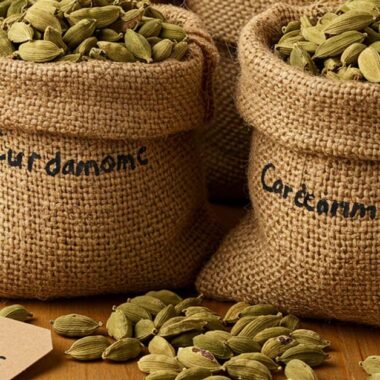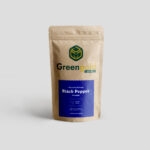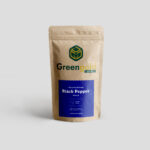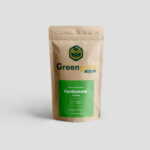Cardamom, one of the world’s most valuable and aromatic spices, played a significant role in ancient Greek medicine. The Greeks, influenced by Egyptian and Indian medical traditions, recognized cardamom’s healing properties and incorporated it into their diet, remedies, and early pharmaceutical practices.
From Hippocrates, the father of modern medicine, to Theophrastus, the great botanist, many ancient Greek scholars studied and prescribed cardamom for its digestive, respiratory, and therapeutic benefits. Let’s explore how this exotic spice was used in Greek medical traditions and why it was highly prized in the Mediterranean world! 🌍
📜 Mentions of Cardamom in Ancient Greek Texts
Cardamom was well-documented in Greek medical and botanical literature, often referred to as “Amomon” (ἄμωμον) in ancient texts.
🔹 Hippocrates (460–370 BCE) – The Father of Medicine
- Hippocrates used cardamom as a digestive aid and a remedy for stomach disorders.
- He recommended it for respiratory issues, believing its warm properties could help clear mucus and congestion.
🔹 Theophrastus (371–287 BCE) – The Father of Botany
- Theophrastus described cardamom’s cultivation and medicinal uses in his famous work “Enquiry into Plants”.
- He noted that it was imported from India and used in medicinal pastes and incense.
🔹 Dioscorides (40–90 CE) – Greek Physician & Pharmacist
- Dioscorides, in his medical treatise “De Materia Medica,” classified cardamom as an important therapeutic spice.
- He documented its use for digestive relief, soothing sore throats, and improving circulation.
💡 Fun Fact: The Greeks valued cardamom so much that they often mixed it with wine and honey to create potent medicinal elixirs! 🍷🌿
🏺 How Ancient Greeks Used Cardamom Medicinally
Cardamom was a key ingredient in ancient Greek apothecaries, used for treating a variety of ailments. Here are some of its main applications in Greek medicine:
1. Digestive Health & Stomach Ailments 🍽️
- Cardamom was considered a carminative, meaning it helped reduce bloating, gas, and indigestion.
- It was often chewed after meals or brewed into a herbal tonic to aid digestion.
- Greek physicians mixed cardamom with fennel and anise to treat stomach cramps and nausea.
💡 Even today, cardamom is used in many cultures as a natural digestive aid!
2. Respiratory Relief & Cold Remedies 🌬️
- The Greeks believed that cardamom’s warming properties could help clear congestion and ease breathing.
- It was used in steam inhalations and herbal syrups for coughs and sore throats.
- Cardamom-infused honey was given to people suffering from bronchitis and colds.
3. Anti-Inflammatory & Pain Relief 🌡️
- Cardamom was used as an anti-inflammatory remedy for joint pain and swelling.
- Greek physicians prepared cardamom-based salves to treat muscle pain and arthritis.
4. Aphrodisiac & Mood Enhancer ❤️
- In ancient Greek culture, cardamom was considered a natural aphrodisiac.
- It was added to wine and herbal infusions to enhance libido and energy.
- Some Greek physicians recommended cardamom for reducing anxiety and stress, believing its fragrance had a calming effect on the mind.
💡 Hippocrates prescribed cardamom-infused wine for both relaxation and vitality!
5. Dental & Oral Health 🦷
- The Greeks used cardamom as a natural breath freshener.
- It was chewed to cleanse the mouth, prevent infections, and freshen breath.
- Greek apothecaries combined cardamom with myrrh and honey to create early versions of mouthwash and toothpaste.
💡 Even today, cardamom is used in many herbal toothpastes for its antibacterial properties!
🚢 Cardamom’s Trade & Value in Ancient Greece
Cardamom was a luxury spice in Greece, imported from India and Arabia through the Silk Road and maritime trade routes.
✔️ It was considered a symbol of wealth and status, often used in temple offerings and royal feasts.
✔️ Wealthy Greeks stored cardamom in ceramic jars to preserve its fragrance.
✔️ It was also burned as incense in Greek temples to purify the air and create a spiritually uplifting atmosphere.
💡 Ancient Greeks believed that the aroma of cardamom had divine properties and used it in religious rituals!
🌍 The Greek Influence on Cardamom’s Spread in Europe
The Greek medical and trade networks helped introduce cardamom to the broader Mediterranean world.
✔️ Roman physicians, inspired by Greek medicine, adopted cardamom in their healing practices.
✔️ Arab traders continued the spice trade, making cardamom a staple in Middle Eastern and Mediterranean cuisines.
✔️ Over time, European herbalists incorporated Greek medical knowledge into medieval remedies, keeping cardamom’s legacy alive.
💡 Greek scholars laid the foundation for cardamom’s widespread use in medicine, which later influenced both Roman and medieval European healing traditions.
🌿 Experience the Ancient Greek Healing Power of Cardamom!
From Hippocratic remedies to soothing herbal tonics, cardamom has been a trusted spice for well-being and vitality for over 2,500 years! 🌿✨
🔗 Get premium-quality cardamom from Greengold Guide and enjoy the ancient Greek tradition of healing and wellness!
Let the wisdom of the ancient Greeks inspire your health journey with the power of cardamom! 🇬🇷✨












